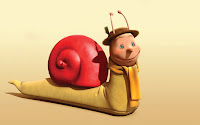Lynchian (adj.); artworks made in the style of David Lynch; i.e., artworks characterised
by the juxtaposition of surreal and often sinister visual elements with everyday events
and environments in order to create a dreamlike quality of mystery or menace.
As I'm sure most readers will be aware, the American filmmaker David Lynch died last month.
Whilst I'm happy to acknowledge his visionary genius as an artist, I can't say I'm a fan of his work - and particularly loathe The Elephant Man (1980), which has to be one of the most overrated movies of all time [1].
Still, when BBC Four decided to show Blue Velvet (1986) earlier this week in memory of Lynch, I simply had to watch it once more - and make the Little Greek do so, even if surreal psychosexual postmodern noir isn't really her cup of tea.
For one thing, I wanted to see if this exploration into the dark and violent underworld of suburban America was as as disturbing as I originally found it (it was); and, for another thing, I wanted reassurance that Isabella Rossellini, as lounge singer Dorothy Vallens, was as beautiful as I remember her (she was).
Strangely, however, I think for me now the most disturbing part of the entire movie happens in the opening couple of minutes; i.e., before Jeffrey (played by Kyle MacLachlan) finds the severed ear [2] and before he finds himself mixed up with Frank Booth, a perverse and sadistic gangster - who really doesn't like to be looked at - played by Dennis Hopper.
It's the extreme close up shot of beetles ferociously struggling for survival in the soil beneath the perfect lawn that terrifies; not so much the sight of them - as an entomophile, I'm not squeamish about bugs and beetles or other creepy-crawlies - it's more the loud droning audio provided by the renowned sound designer Alan Splet that triggers my anxiety.
As symbolism, the use of beetles to suggest the fact that death, decay, and corruption - i.e., evil - is ever-present beneath the surface of life - or that chaos reigns, as another great filmmaker once put it [3] - is not particularly innovative, but, nevertheless, it remains potent and evocative here.
The insect motif is, as other commetators have pointed out, recurrent throughout Blue Velvet and it's not concidental that Jeffrey disguises himself as a bug controller in order to initially gain access to Dorothy's apartment and ultimately exterminates that human cockroach, Frank Booth, albeit with a bullet rather than pesticide.
Notes
[1] I know it was nominated for multiple Academy Awards, but I wouldn't even give it an iced bun. Essentially, I agree with Nadja Durbach's description of The Elephant Man as "much more mawkish and moralising than one would expect from the leading
postmodern surrealist filmmaker".
See the chapter entitled "Monstrosity, Masculinity, and Medicine: Reexamining the Elephant Man" in The Spectacle of Deformity: Freak Shows and Modern British Culture, (University of California Press, 2009), p. 35.
[2] Re the severed ear in Blue Velvet - which is found by Jeffrey crawling with back ants - see the post dated 1 Jan 2024: click 'ere.
[3] 'Chaos reigns' is a famous line (spoken by a fox) in Lars von Trier's 2009 film Antichrist. I have written two posts on this theme; the first dated 14 Dec 2018 - click here - and the second dated 11 Oct 2024 - click here.
Click here to watch the opening scene of Blue Velvet (dir. David Lynch, 1986), climaxing with what for me is the most disturbing shot of the entire movie; never mind the psychosexual shenanigans, it's the beetle mania that shocks.
Some readers might also be interested in a post related to this one dated 28 Nov 2021, in which I discuss Isabella Rossellini's entomophilia and her attempt to create green porno: click here.



.jpg)

.jpg)









